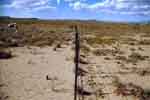Articles and links
Over time, how we make decisions often has more effect on the outcome than our specific choices. "Good" choices made in isolation often fail or cause problems. "Bad" choices made in ways that allow learning and course-correction will self-correct in time.

Paradigm shifts
Backwards Brain Bicycle a short video by Destin Sandlin. A vivid example of the difference between knowledge and knowhow.
The Last Battle by Allan Savory. The biggest challenge humanity faces is how to live sustainably in our environment. A gripping keynote address to the 1997 Washington State University Holistic Management project.
Teaching Holistic Management so learners succeed by Noel McNaughton. How he developed a very successful program for teaching Holistic Management, and why he quit teaching it.
Using tourism to increase resource awareness by Peter Donovan. A proposal to raise public awareness of the 3% of our economy on which the rest depends. The Wallowa County Chieftain, 1996.
Achieving the potential of the federal lands by Peter Donovan. Can long-term leasing solve some of the major problems involved with the management of U.S. federal lands? Different Drummer, 1995.
Biodiversity: where's the beef? by Peter Donovan. The beef industry as a whole is often viewed negatively by environmentalists and consumers. Can they take a wider view? Published in PCC Sound Consumer, 1996.
Power and politics
Democracy and power by Bob Chadwick. How to share power so that democracy works, and people don't need to bypass the existing power structure.
The most serious problem of democracy today Presents an alternative to the top-down, expert-advice model causing so many problems today.
Participatory media: Korea's OhMyNews. Can a new model of media help the U.S. shift from representative to participatory democracy?
Resolving conflict and sharing power (section). Articles and links, plus Bob Chadwick's free consensus-building tutorial.
Decision making tools and techniques
Making better decisions — an illustrated tutorial by Peter Donovan, 2005.
Monitoring farms for progress toward sustainability by Karl North and Donn Hewes. Introduces web graphs, a simple tool that provides a way to monitor even very complex systems, and visually summarize sustainability patterns at a glance.
Setting good goals by Joy Livingwell. Two proven methods for setting goals you're likely to achieve, and will like once you attain them.
Holistic Management testing questions by Joy Livingwell. A quick but comprehensive way to determine whether a proposed action takes you toward or away from what you really want.
Testing technology: what will work for you? by Joy Livingwell. Even technology that passes the Holistic Management testing guidelines may have hidden costs or problems. How to discover them before you invest in the technology and get bitten. Holistic Management In Practice, 1999, revised April 2002.
Paradigms and decision-making frameworks (long) by Peter Donovan. What limits change, and what makes change possible. Until we become aware of our paradigms and beliefs, they rule our choices. 1997.
Real-world decision making and paradigm shifts
Integrating ranchland ownership with community values by Tony and Andrea Malmberg. Community Ranch Ownership provides an alternative to land ownership patterns that tend to fragment ranches. 2002.
Hwange villagers adopt Holistic Management by Lovemore Ngoma. Near Victoria Falls in Zimbabwe, villagers have taken responsibility for their future by changing the way they make decisions. The Zimbabwe Herald, 1996.
Grassroots reporting of paradigm shifts. An Argentine rancher observes, "Once I was able to view myself as a part--and only a part--of larger wholes, all the tenets of conventional management began to fall one after another: nature as a passive object; engineering as a godlike endeavor; species divided into 'good' and 'bad'; weather as a problem; technology as the paramount solution; my family and my personal life as something apart from the way I make my living." Cliff Montagne and Peter Donovan, Journal of Soil Conservation, 1996.
Helping people manage land better by Peter Donovan. Helping suburban and ranchette landowners manage land better; protecting farmland with land trusts. Patterns of Choice, 1997.
Paradigm shift at the Broughton Land Company by Doug Warnock. By changing to a later calving date, manager Gene Patton benefited ecology, quality of life, and economics. Patterns of Choice, 1997.
Who will take care of the land? by Peter Donovan. Faced with seemingly insuperable regulatory, economic, social, and ecological challenges, ranchers, environmentalists, and agency people in Challis, Idaho used holistic thinking to solve their problems. Patterns of Choice, 1998.
Beyond partial management by Marcos Gimenez-Zapiola. An Argentinian rancher elegantly summarizes some of the basics of holistic management, including the importance of understanding the whole. The Holistic Resource Management quarterly, 1997.
Improving rain absorption and reducing flood damage using good grazing management by Peter Donovan. Better management replaces annuals like cheatgrass with perennials that help soil absorb water, and whose deep roots hold soil. The Wallowa County Chieftain, 1997.
The Colville Tribe by Peter Donovan. How and why the Colville Confederated Tribes adopted holistic management in 1996. Long article from Patterns of Choice, 1997. Shorter article from The Wallowa County Chieftain, 1996.
Doing the impossible by Peter Donovan. The story of changes on the Colville Reservation, and how Jeff Goebel and Don Nelson influenced the land-grant university itself. Patterns of Choice, 1997.
An evolution, not an event: how the WSU/Kellogg project started and where it's going by Don Nelson, project director. Description here. Patterns of Choice, 1997.
Washington's Holistic Management Project holds first statewide meeting by Peter Donovan. Notes from the Washington State University/Kellogg Holistic Management project's statewide meeting in Yakima (USA). Patterns of Choice, 1997.
Seeking transformation by Peter Donovan. A brief description of the Washington State University/Kellogg Foundation Holistic Management Training Project. Patterns of Choice, 1997.
Holistic managers and management groups from Idaho and Washington, U.S.A. improve land, share learning, and create connections between farmers, agency people, and urban residents. By Peter Donovan. Patterns of Choice, 1997.